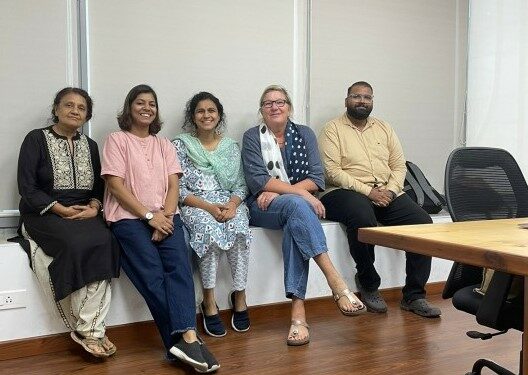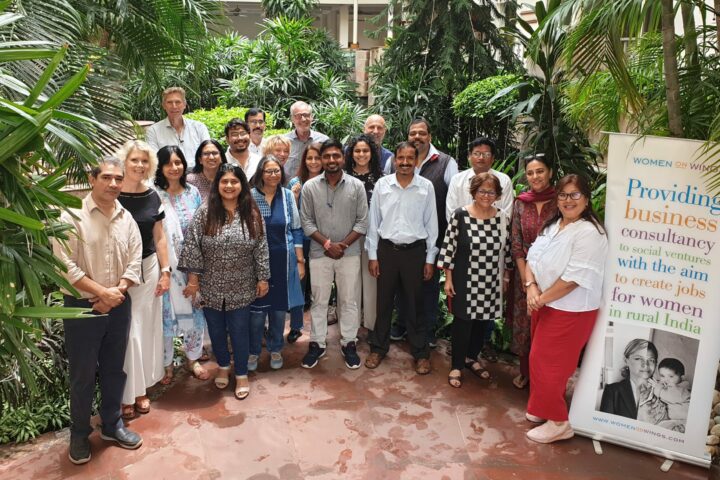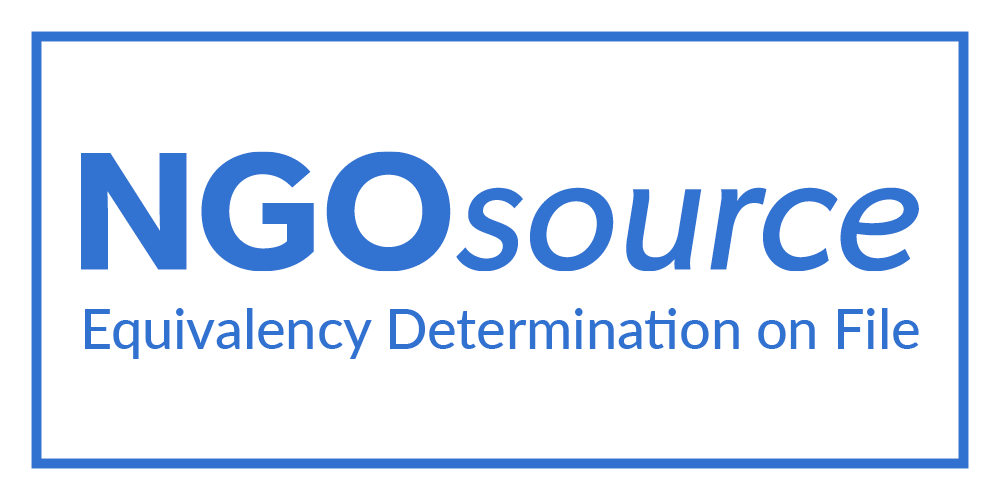Here are key lessons for social enterprises gleaned from running over 250 workshops with Indian social entrepreneurs and government institutions over the last ten years. Women on Wings joint managing director, Ronald van het Hof, asks Is everyone an entrepreneur? and breaks down that answer and shares eleven other valuable insights for social entrepreneurs.
Ronald understands the aims, passion, generosity, risks, challenges and successes of social entrepreneurs in scaling their organizations so they can co-create jobs for rural women. These twelve valuable insights are from his experience with social-forward organizations from Tripuradevi in India’s northern mountains to Nagapattinam in Tamil Nadu in the south, and from Bhuj to Imphal.
Working with many social entrepreneurs has enriched me tremendously. Every meeting/workshop or CEO Summit gave new insights that I could apply in the next sessions with other social enterprises so that they can employ and empower women. I’ve distilled the most important ones into these twelve points that I think every social entrepreneur should know when they consider growing their business:
1. Life is all about choices
This phrase has been my mantra for the past ten years. That’s why we made it the first slide of each Women on Wings’ business strategy workshop presentation. As a social entrepreneur or government institution you are faced with decisions every day from products, markets, people, finances, funding and yourself. You can not do everything, you must prioritize. To help you make choices you need a compass to give direction – your WHY.
2. Discover your social enterprise’s WHY

What is the reason for your existence? What makes you stand out of the cluttered crowd? Not an easy question to answer. I have learned using Simon Sinek’s Golden Circle method that you must ask yourself WHY you are running your enterprise. After, ask yourself, “why is that important?” many times to drill down to the real WHY.
Many times, a company’s founder must go back to the initial reasoning of why he/she started the enterprise. It is important to stick and be loyal to your WHY forever. It is carved in stone. Your WHY will give you company and brand recognition in the market. This creates a unique identity that you can use in all your internal and external communication. It will help you to create your social enterprise’s language. When you have discovered your WHY, you can start thinking about goals for growth.
3. Dream big, set realistic goals
How will you realize your WHY and what are you going to do? You can start dreaming big about where you want to be in 5 to 10 years’ time in terms of social impact, revenue, profitability, and market share. After that exercise, return to the reality of today and begin business model planning for the coming three years with your big dream as a dot on the horizon.
4. A dream without a plan remains a dream
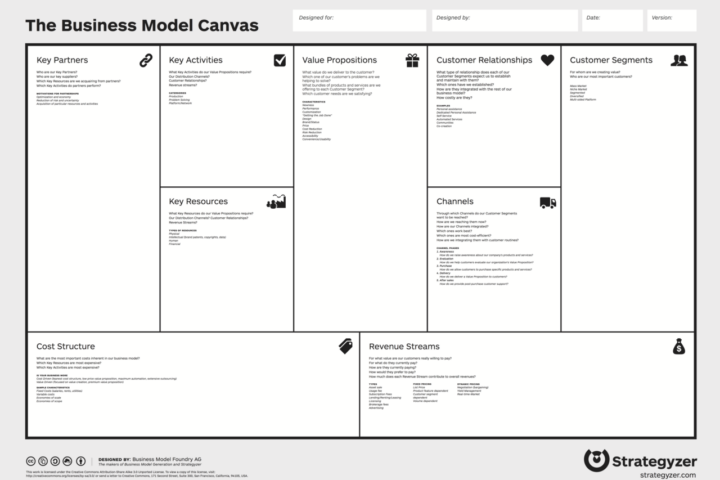
The Business Model Canvas has proven to be an easy-to-implement planning guide for small and medium-size organizations. It covers all the aspects of your social enterprise and forces you to think in a certain pattern. You can review it every year to decide if it is still valid or needs some alterations.
5. Be open to a change of direction
With your WHY as your compass, you may notice while planning for growth that you need to change your direction to achieve the impact you want. For example, after reviewing its business strategy, a social enterprise changed its sales strategy and completely stopped with B2C sales. They did this to create much more impact and reach their target with a high volume B2B sales focus.
6. Create and follow up on targets
While planning and focus are the first steps, setting and keeping targets are key to understanding your business. Data will assist you in tracking these KPIs. It is crucial and a challenge to define what information you need to be in control of for every level in your company. Data are the backbone of every business whether it is finance, customer, sales, profitability, number of complaints, etc. Collecting and analyzing data can be done simply in the beginning and can be used as a base for a future Management Information System (MIS).
7. Most problems in social enterprises are caused by mis- or no communication
Whether it is informal or formal, communication is key in every organization, no matter if they are small, medium, or large. In small companies, informal communication is pretty common, but I’ve seen a certain danger in it. People may assume that things have been communicated but some get left out by mistake. Just plan for a few formal communication moments regularly from the beginning to create that habit and rhythm in the organization. Although it might seem a waste of time at first, when everybody is on the same page, processes will run more smoothly.
8. Celebrate successes and learn from your social enterprise’s mistakes and failures

Because when you learn from blunders, you are a true learning organization. There are two types of mistakes: accidental mishap or a structural one. Analyze the situation. If it turns out to be structural, redesign your process to ensure it will not happen again. Making mistakes is necessary to continuously improve your enterprise’s systems and processes.
9. Start building your second line of management
Your role of entrepreneur/CEO/Founder will change over time. Start thinking about the next line of management from the beginning. What are your key activities where you need qualified people? Have a plan in mind on how to scale your social enterprise. The most challenging part for an entrepreneur is to start delegating. Keep in mind that when you hire people you hire for their attitude, not only for skills. Build the culture you want to see in your company.
10. Build partnerships to take on what your social enterprise can not
Determine the core of your social business and what you are good at. Decide what is not part of your core business and find the right partners to handle these activities. For instance, an organic cotton social enterprise supplies to a weaving business partner who provides a cotton supplier with knowledge of natural dyeing and helps them in implementing it.
11. Is everybody an entrepreneur?
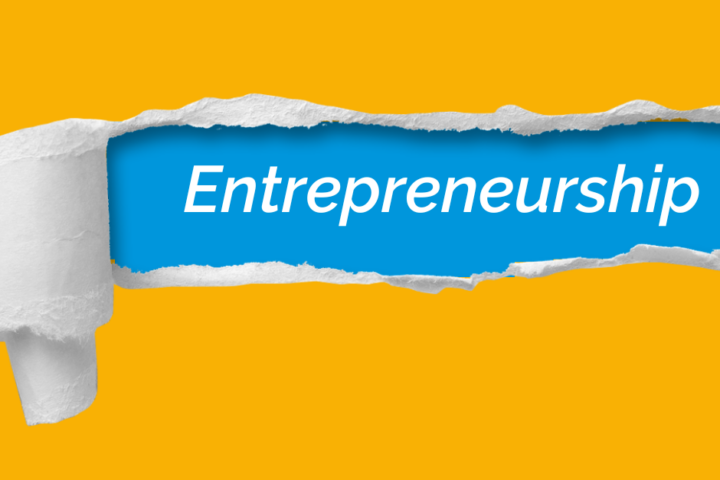
You often hear that everybody is/can be an entrepreneur. I have noticed in the past 11 years this is absolutely not true. There is, according to me, a big difference between being an entrepreneur, having enterprising skills or being an intrapreneur. An intrapreneur is an employee within a company who has ideas about how to take advantage of opportunities – very important but different. The key to success for any (social) enterprise is having a real entrepreneur at the helm. What makes a genuine entrepreneur?
Visionary leadership:
- Entrepreneurs often possess a clear vision of what they want to achieve. They have the ability to see opportunities where others might see challenges and can articulate a compelling vision to inspire others.
Risk tolerance:
- Entrepreneurs are willing to take calculated risks. They understand that uncertainties and challenges are inherent in business and are often comfortable navigating the unknown.
Initiative and proactivity:
- Entrepreneurs are proactive and take the initiative to create opportunities. Rather than waiting for things to happen, they actively seek possibilities and work toward turning their ideas into reality.
Resilience and persistence:
- Entrepreneurship often involves facing failures and setbacks. Resilient entrepreneurs bounce back from challenges, learn from failures and persist in their pursuits despite obstacles.
12. Network with other social entrepreneurs
We all know that it is lonely at the top. Having a network will support you. I have seen the benefits of the network that Women on Wings creates. Social entrepreneurs share, collaborate and learn with each other. The Women on Wings two-day CEO Summits held three times a year are a perfect place to build on this. I am convinced that there is no competition between social enterprises, only scope for synergies to create together a larger impact. Be sure to network.
Knowledge that readies social enterprises for scaling
Women on Wings provides pro bono consulting to social enterprises so they can grow. We do this to co-create employment for women living in rural India who are affected by poverty. By gaining an income these women can move their families out of poverty.
Our first collaboration always starts with a business strategy review, from there we provide a series of tailor-made workshops and solutions on supply chain management, finance, e-commerce, visual branding, exhibit marketing, or HR & leadership etc. The on-site workshops and online sessions are led by the Women on Wings team and a cadre of dedicated international experts with 15+ years background in specific business fields.

